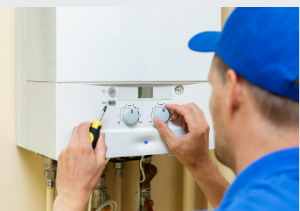Hot water is a huge part of daily life, but many take it for granted. It is comforting to step into a hot shower after a long day, and it can function all year round. Whether you live in a climate with extreme cold or hot temperatures, you need a hot water system to keep your shower hot and your home comfortable. However, not all hot water systems are the same. Before installing a new hot water system, here are some things to keep in mind.
 Ensure your hot water system has adequate storage space. Modern hot water systems use significantly less power than older storage tanks. However, there are some disadvantages to tankless water heaters. They may not have enough water capacity to meet your needs for prolonged periods. A tankless unit, an instantaneous water heater, will waste about 15% of its energy due to radiant heat loss. However, you’ll benefit from their low energy consumption.
Ensure your hot water system has adequate storage space. Modern hot water systems use significantly less power than older storage tanks. However, there are some disadvantages to tankless water heaters. They may not have enough water capacity to meet your needs for prolonged periods. A tankless unit, an instantaneous water heater, will waste about 15% of its energy due to radiant heat loss. However, you’ll benefit from their low energy consumption.
When you’re looking for an upgrade for your hot water systems Adelaide, consult a plumber. Professional plumbers have experience working on hundreds of hot water systems. They can give you specific advice and help you decide if a tankless model is suitable for your home. A plumber can also recommend different water heaters and advise which ones are best for your situation. This way, you can avoid the risk of buying a unit that will not meet your requirements.
Another vital factor to consider is the heat storage capacity of the hot water system. Some hot water systems require large amounts of heat, and water tanks are notoriously inefficient in their heat storage capacity. When the water tanks are too small, the excess heat escapes through the steam, wasting energy. If your hot water systems experience frequent boiling, this is a sign that your heater is too large and firing too often. Alternatively, your heater may have too small a storage capacity, which will result in a large water bill.
A storage tank is an expensive investment that’s not worth it if your hot water needs are infrequent. A separate hot water system can provide hot liquid for multiple appliances. It can also provide hot water for multiple fixtures at once. By installing a tankless hot water system, you will eliminate the problem of having to wait for your hot water to warm up. You’ll also benefit from lower operating costs because it uses less energy while you’re not using it.
The fuel type used in your water heater will affect the overall cost of running the unit. Electric hot water systems tend to be more energy-efficient than their gas counterparts, but you must consider the fuel source. Natural gas can also be cheaper than electricity in some areas, but it may be less efficient. If you live in an area where natural gas isn’t available, you can opt for propane hot water systems. In addition, electric hot water systems are easier to maintain and last longer.
There are several advantages of decentralised water heating systems for multi-residential buildings in New Zealand. They simplify the construction process and make handover easier. Individual residences can be built with instantaneous electric hot water systems, which do not require flues, venting, or gas feeds. In addition to reducing the overall construction cost, they also require minor plumbing. They also reduce labour costs. And since they are cost-effective, it is an excellent option for multi-residential buildings.
Another option is heat pumps. While they are an efficient option, heat pumps are often unreliable and costly. However, they are generally suitable for areas with high temperatures, and some heat pumps come with boosters. Depending on the brand and model, heat pumps can cost $2,500 to $4,000.
A hot water system is a central heating system that heats water to about sixty to eighty degrees Celsius. Water is then pumped through piping to coil units, such as radiators, where it gives off heat. Hot water can be circulated naturally by gravity or pressure, but a pump’s forced circulation is better. The water is then cooled and returned to the boiler. The whole process is cyclical and aesthetically pleasing, but there are many different types of hot water systems.